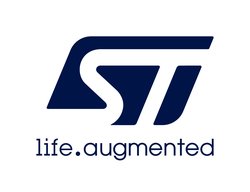DISCO-L562QE (STM32L562E-DK)
The STM32L562E-DK Discovery kit is a complete demonstration and development platform for Arm Cortex-M33 with TrustZone and ARMv8-M mainline security extension core-based STM32L562QEI6QU microcontroller, with 512 Kbytes of Flash memory and 256 Kbytes of SRAM.
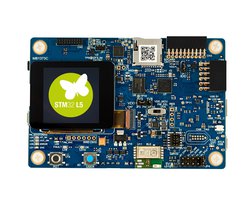
Overview¶
https://www.st.com/en/evaluation-tools/stm32l562e-dk.html
The STM32L562E-DK Discovery kit makes use of the STM32L562QEI6QU innovative ultra-low-power oriented features to enable prototyping for many wearable or sensor applications, with state-of-the-art energy efficiency, secure boot, and TrustZone-based software isolation.
For even more user-friendliness, the onboard STLINK-V3 debugger provides out-of-the-box loading and debugging capabilities, as well as USB Virtual COM port bridge.
Microcontroller main features¶
https://www.st.com/en/microcontrollers-microprocessors/stm32l562qe.html
The STM32L562xx devices are an ultra-low-power microcontrollers family (STM32L5 Series) based on the high-performance Arm Cortex-M33 32-bit RISC core. They operate at a frequency of up to 110 MHz.
The STM32L5 Series devices offer security foundation compliant with the trusted based security architecture (TBSA) requirements from Arm. They embed the necessary security features to implement a secure boot, secure data storage, secure firmware installation and secure firmware upgrade.
The STM32L562xx devices embed several peripherals reinforcing security:
- One AES coprocessor
- One public key accelerator (PKA), DPA resistant
- One on-the-fly decryption engine for Octo-SPI external memories
- One HASH hardware accelerator
- One true random number generator
Board features¶
- STM32L562QEI6QU microcontroller featuring 512 Kbytes of Flash memory and 256 Kbytes of SRAM in BGA132 package
- 1.54" 240 x 240 pixel-262K color TFT LCD module with parallel interface and touch-control panel
- USB Type-C Sink device FS
- On-board Energy Meter: 300 nA to 150 mA measurement range with dedicated USB interface
- SAI Audio CODEC
- MEMS digital microphones
- 512-Mbit Octal-SPI Flash memory
- Bluetooth® V4.1 low energy module
- iNEMO 3D accelerometer and 3D gyroscope
- 2 user LEDs
- User and Reset push-buttons
- Board connectors:
- USB Type-C
- microSD card
- Stereo headset jack including analog microphone input
- JTAG debugger
- DPM dynamic-power measurement interface for external device
- STMod+ expansion connector with fan-out expansion board for Wi-Fi, Grove and mikroBUS compatible connectors
- PMOD expansion connector
- Audio MEMS daughterboard expansion connector
- ARDUINO Uno V3 expansion connector
- Flexible power-supply options: ST-LINK USB VBUS or external sources
- On-board STLINK-V3 debugger/programmer with USB re-enumeration capability: mass storage, Virtual COM port and debug port
TFM support¶
TFM support with mbed-os is on going.
Board is already supported in TFM repo: https://git.trustedfirmware.org/TF-M/trusted-firmware-m.git/tree/platform/ext/target/stm
Board pinout¶
Pins Legend¶
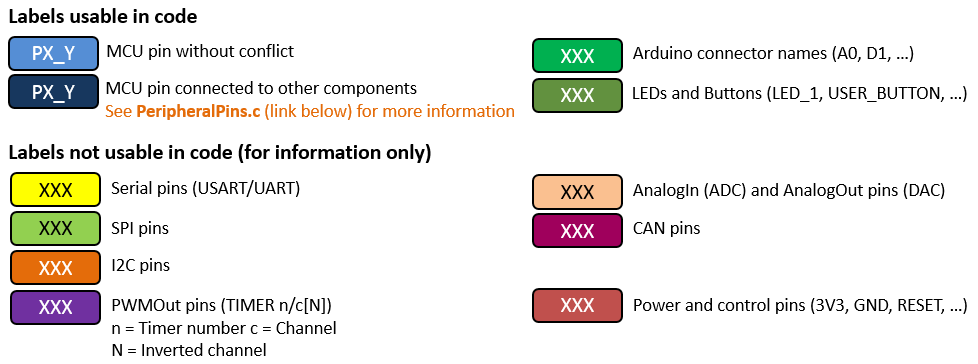
You can find more details on the available pins and labels in the PeripheralPins.c and PinNames.h files.
- ARMmbed/mbed-os repository on GitHub (up-to-date version, used with mbed CLI commands)
https://github.com/ARMmbed/mbed-os/tree/master/targets/TARGET_STM/TARGET_STM32L5
Arduino-compatible headers¶
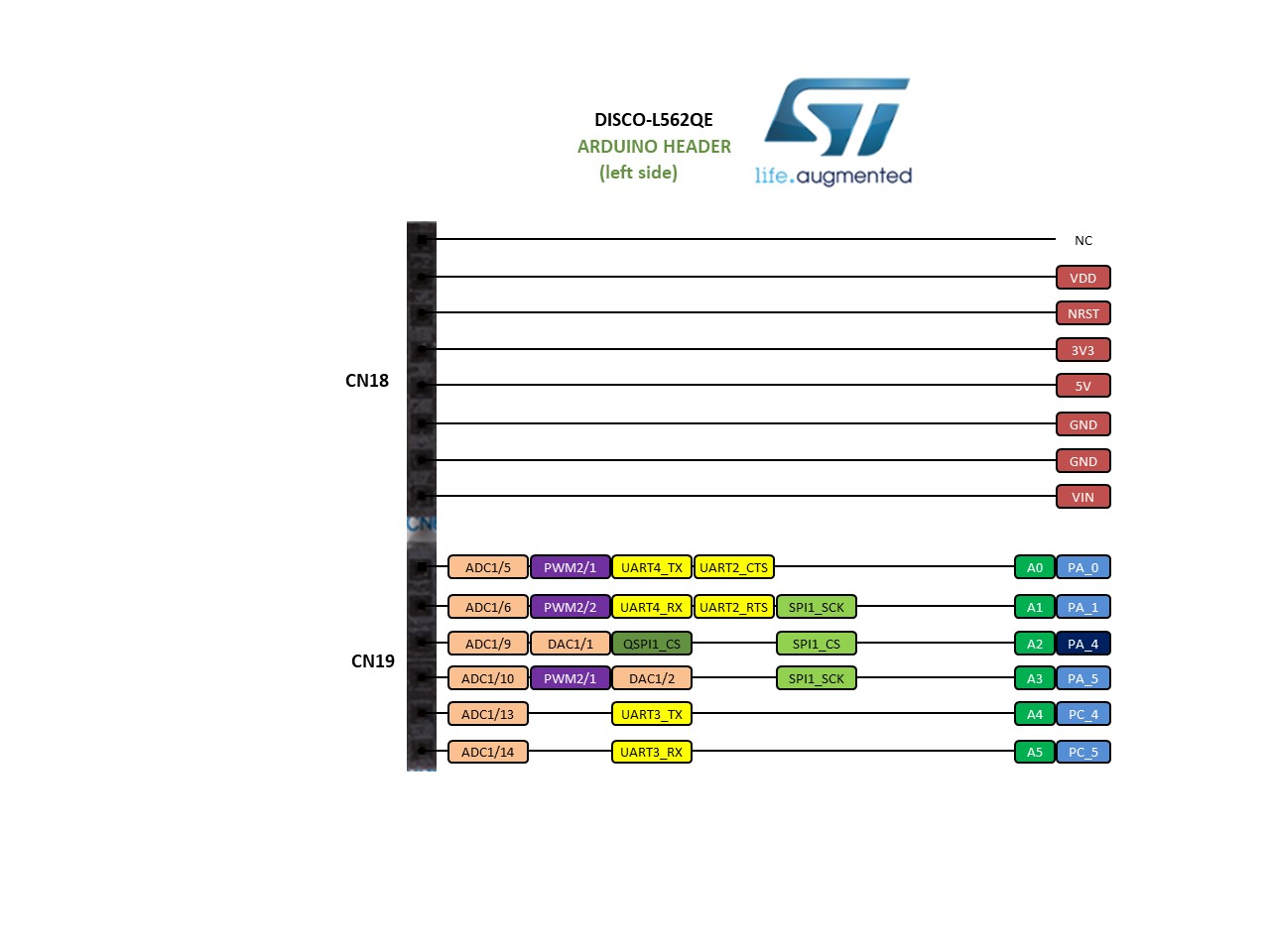
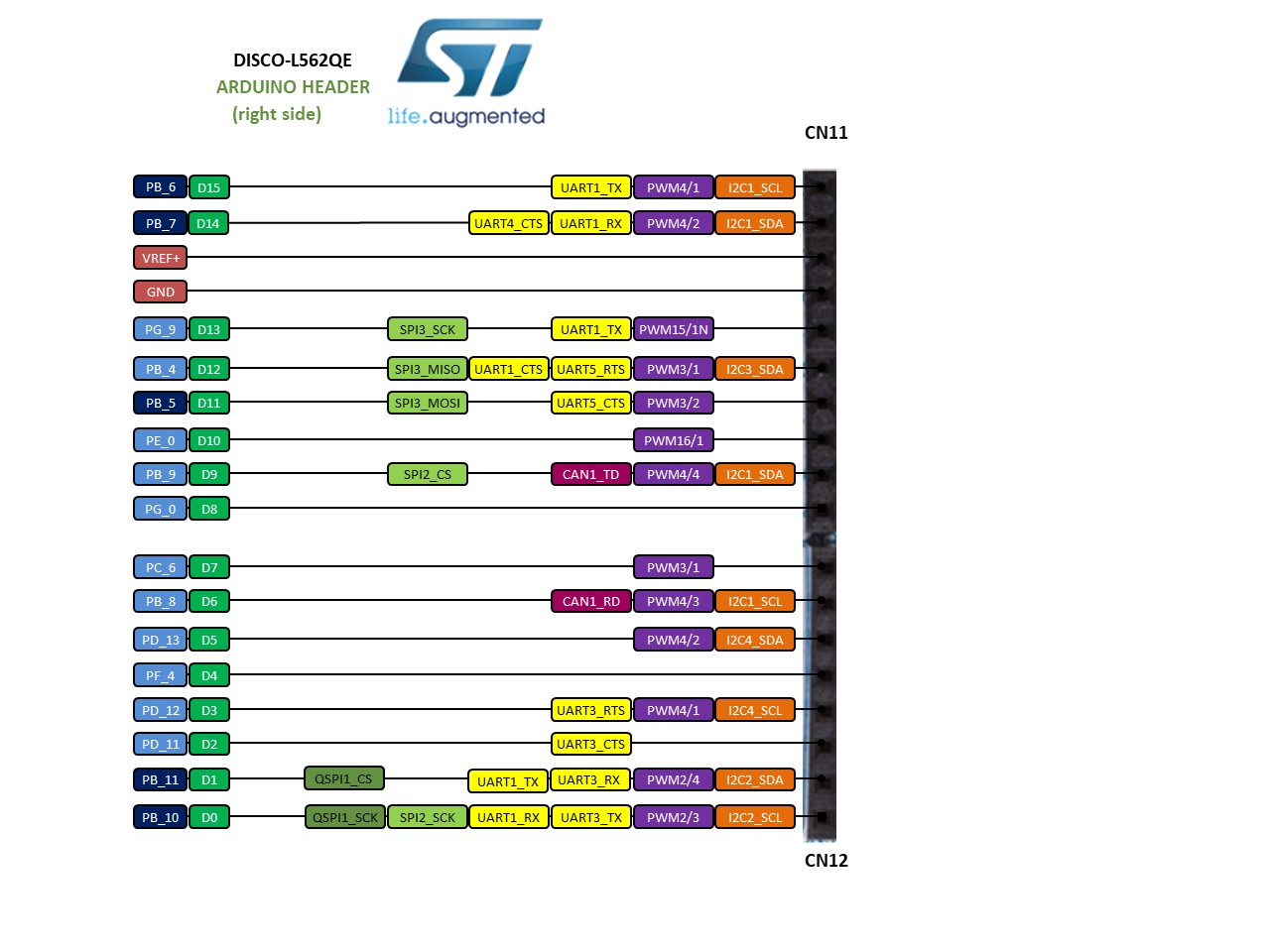
STMod+ header¶
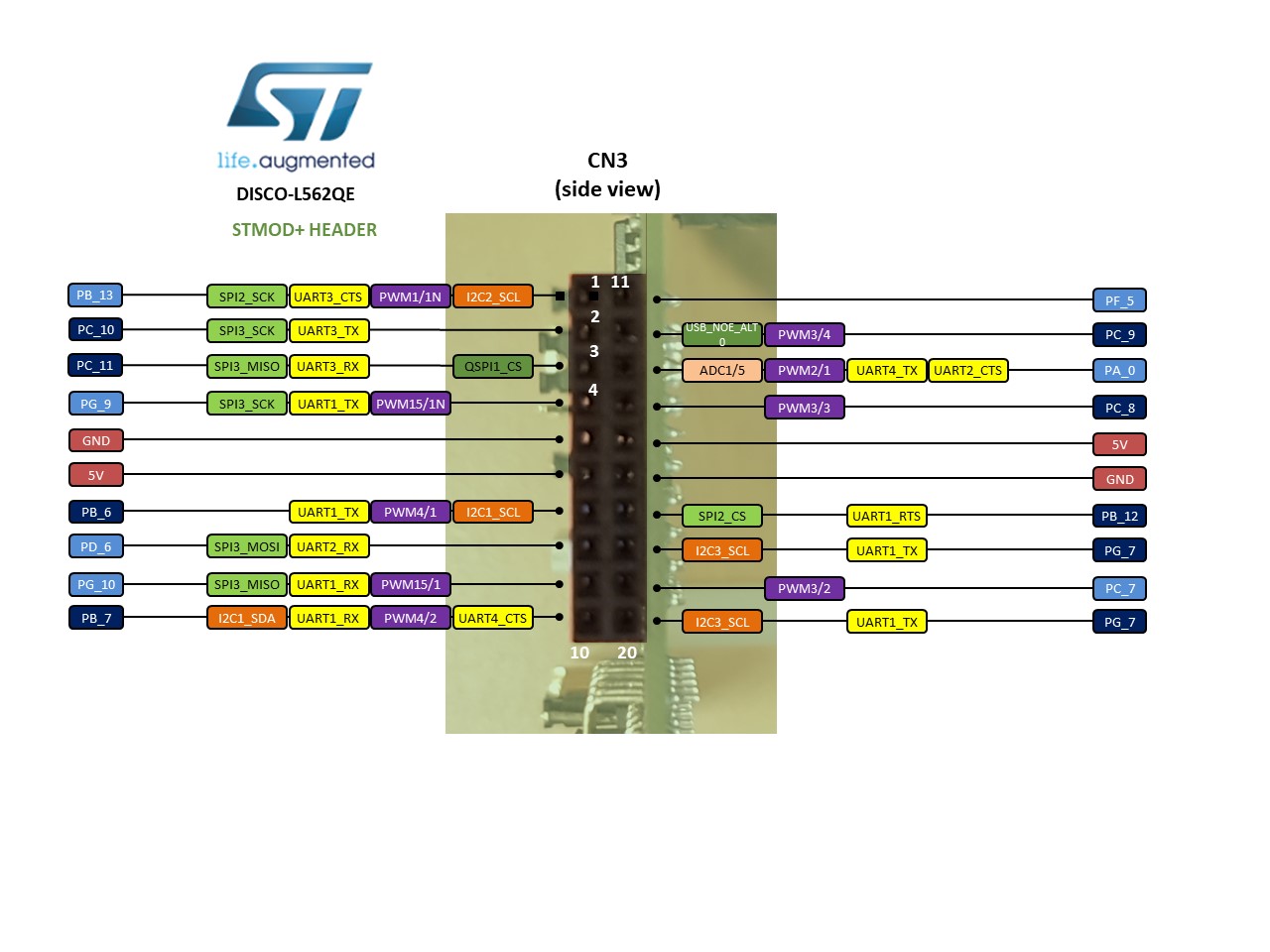
mbed-os examples¶
These official mbed-os examples have been tested on this board:
- https://github.com/ARMmbed/mbed-os-example-blinky
- https://github.com/ARMmbed/mbed-os-example-cellular
Use this board as power monitor¶
https://os.mbed.com/teams/ST/wiki/UseSTM32CubeMonitorPower
Technical references¶
Known limitations¶
The following section describes known limitations of the platform. Note that general issues are tracked into the mbed repository available on GitHub.
You need to log in to post a discussion
